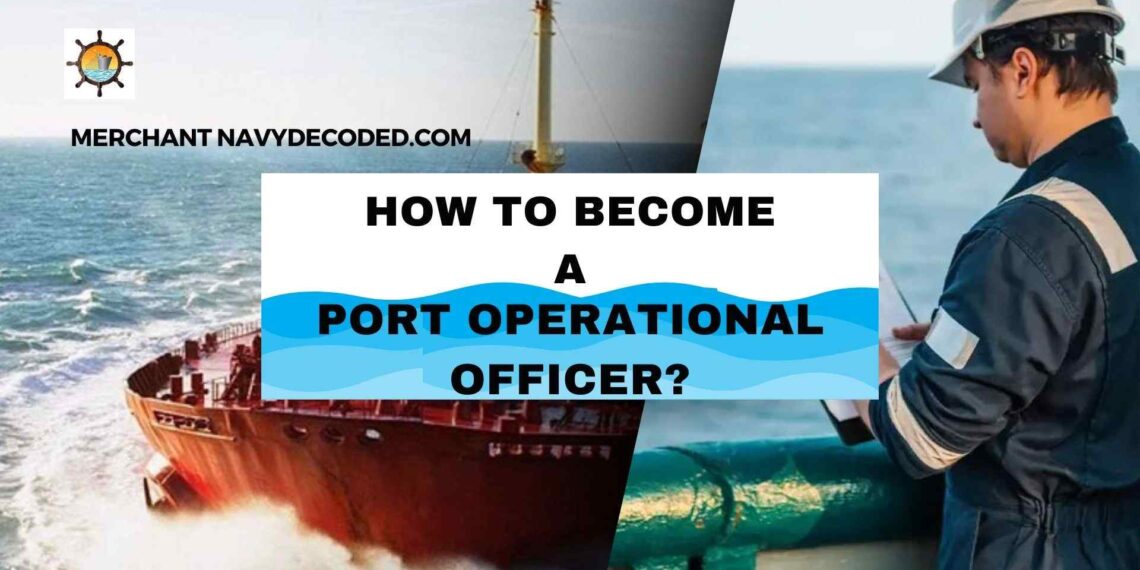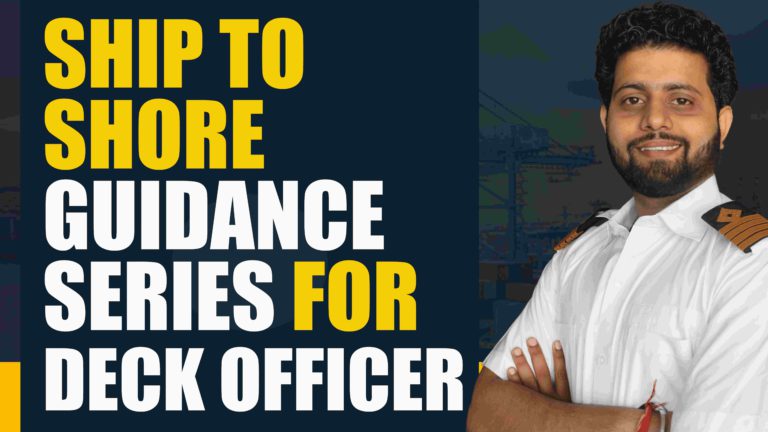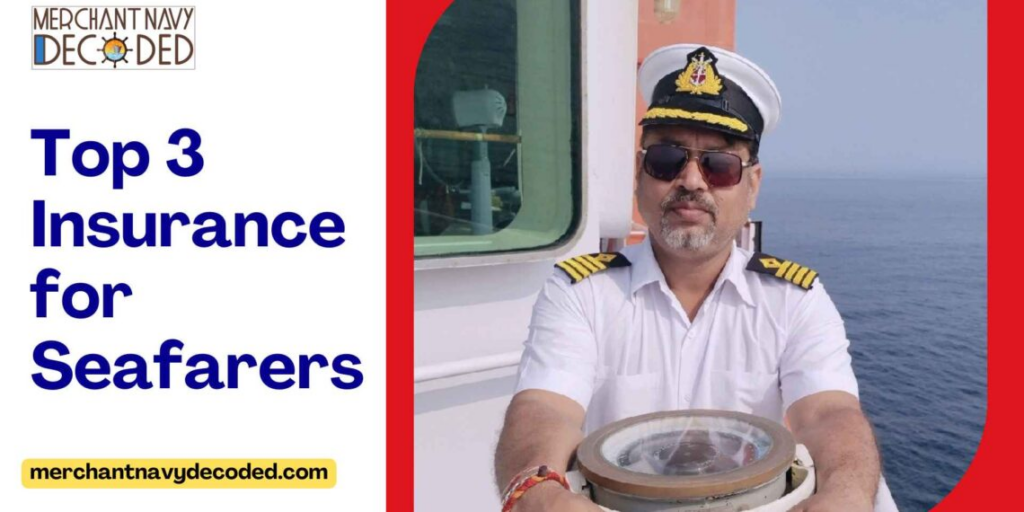How to Become a Port Operation Officer.
Table of contents
- 1:- Overview
- 2:- What are Port Operations?
- 3:- Who is Port Operation Officer?
- 4:- Skills Required for Port Operation Officer
- 5:- Opportunities f or D eck Officers in Port Operations
- 6:-Various Positions for Port Operation Officer
- 7:- What to Upskill for Port Operations Management
- 8:- Port Operations Officer Salary
- 9:- Career Growth for Port Operating Officer
- 10:- Conclusion
1:- Overview
- Explains salary ranges for different positions in Port Operation Officer, from Master Mariners to entry-level officers.
- Talks about how you can climb up the career ladder and get promoted in port operations, even if you start with a lower salary.
- Shows that while engine officers work more with machines, deck officers have a wider range of job opportunities available to them in port operations.
2:- What are Port Operations?

- Port operations refer to the activities and processes involved in managing the movement of goods, passengers, and vessels in and out of a port.
- It includes tasks like loading and unloading cargo, maintaining port infrastructure, managing vessel traffic, and ensuring safety and security within the port area.
3:- Who is Port Operation Officer?

- A port operations officer is someone who oversees the day-to-day activities at a port to ensure smooth operations. They coordinate the loading and unloading of cargo, manage vessel traffic, and ensure safety and security within the port.
- An example would be someone who directs the movement of ships in and out of the port, supervises cargo handling operations, and ensures compliance with port regulations.
- To learn more about opportunities for Deck Officers in Shore, check out our free Ship to Shore Guidance Series for Deck Officers which will give you all the information about various shore jobs, salaries, and joining procedures.
4:- Skills Required for Port Operation Officer
4.1:- Stakeholder Management
- Deck officers need strong communication and interpersonal skills to effectively interact with various stakeholders such as port authorities, shipping companies, and cargo owners.
- They must be able to coordinate with these parties to ensure smooth operations and timely cargo handling.
4.2:- Cargo Operation Knowledge
- Deck officers must possess a deep understanding of cargo handling procedures, including loading, unloading, and stowage.
- They need to be familiar with different types of cargo and their specific handling requirements to ensure safe and efficient operations.
4.3:- Management Level Expertise
- Deck officers at management levels require leadership and decision-making skills to oversee port operations effectively.
- They are responsible for directing and supervising the activities of the deck crew, ensuring compliance with safety regulations, and resolving any operational issues that may arise.
5:- Opportunities for Deck Officers in Port Operations
5.1:- Tanker and Gas Carrier Officers
- Opportunities for tanker and gas carrier officers in port operations may be relatively less due to the specialized nature of these vessels.
- However, they can still find roles in co-ordinating the loading and unloading of hazardous cargo and ensuring compliance with stringent safety regulations.
5.2:- Bulk and Container Officers
- Bulk and container officers have greater opportunities in port operations due to their expertise in cargo handling and the use of bulk carriers and container ships in global trade.
- They can manage the efficient handling of bulk commodities such as coal, grain, and ore, as well as oversee container terminal operations, including container stacking and container vessel berthing.
Before shifting to shore jobs, check out what insurance you must have as a seafarer for yourself and your family.
6:-Various Positions for Port Operation Officer
6.1:- Port Captain or Assistant Port Captain
- The Port Captain oversees the overall operations and activities within the port.
- They coordinate vessel movements, manage berth assignments, and ensure compliance with safety regulations.
- Assistant Port Captains support the Port Captain in these responsibilities.
6.2:- CFS or ICD Manager (Container Background)
- The CFS (Container Freight Station) or ICD (Inland Container Depot) Manager oversees the handling and storage of containerized cargo.
- They ensure efficient loading and unloading of containers, manage inventory and coordinate transportation of containers to and from the port.
6.3:- Agency Manager
- The Agency Manager represents shipping agencies and acts as a liaison between the shipping company and port authorities.
- They handle administrative tasks, coordinate vessel scheduling, and ensure compliance with customs and immigration requirements.
6.4:- Terminal Manager (Gas Background)
- The Terminal Manager is responsible for the operations of terminals handling gas or other liquid bulk cargoes.
- They oversee the safe loading and unloading of gas carriers, manage terminal infrastructure, and ensure compliance with environmental regulations.
7:- What to Upskill for Port Operations Management

- Learn About Port Operations
- Understand how ports work, including cargo handling, vessel traffic management, and safety procedures.
- Develop Communication Skills
- Improve your ability to communicate effectively with team members, port authorities, and clients to ensure smooth operations.
- Gain Technical Knowledge:
- Familiarise yourself with port machinery, equipment, and technologies to troubleshoot issues and optimize efficiency.
- Enhance Leadership Skills
- Learn how to lead and motivate teams, delegate tasks efficiently, and make quick decisions to handle unexpected situations.
- Stay Updated on Industry Trends
- Keep abreast of developments in the maritime industry, regulations, and technological advancements to adapt and innovate in your role as a port operations expert.
8:- Port Operations Officer Salary

- Master Mariner: Typically earns around 32 Lakhs per annum.
- Management Level Officer: Salaries range between 25 to 28 Lakhs per annum, slightly lower than ship management positions.
- Operation Officer: Entry-level salaries range from 12 to 18 Lakhs per annum.
9:- Career Growth for Port Operating Officer
- High Growth Potential: Despite starting at lower salaries, there’s significant potential for growth.
- Promotion Opportunities: Advancement opportunities abound in port operations.
- From Master Mariner to CEO: Master Mariners can progress to various high-ranking positions such as CEO, General Manager, Head of Terminal, and Manager, among others.
Engine officers may not have as many opportunities in port operations because their focus is often on the technical aspects and maintenance of port machinery and equipment. On the other hand, deck officers have more options available to them.
10:- Conclusion
In conclusion, port operations offer diverse career paths with opportunities for growth and advancement. Whether you’re starting as an entry-level officer or aiming for higher positions like CEO or manager, there are avenues for progression. By upskilling, staying updated on industry trends, and honing essential skills like communication and leadership, you can become a master at port operations and thrive in this dynamic field.
Disclaimer :- The opinions expressed in this article belong solely to the author and may not necessarily reflect those of Merchant Navy Decoded. We cannot guarantee the accuracy of the information provided and disclaim any responsibility for it. Data and visuals used are sourced from publicly available information and may not be authenticated by any regulatory body. Reviews and comments appearing on our blogs represent the opinions of individuals and do not necessarily reflect the views of Merchant Navy Decoded. We are not responsible for any loss or damage resulting from reliance on these reviews or comments.
Reproduction, copying, sharing, or use of the article or images in any form is strictly prohibited without prior permission from both the author and Merchant Navy Decoded.





